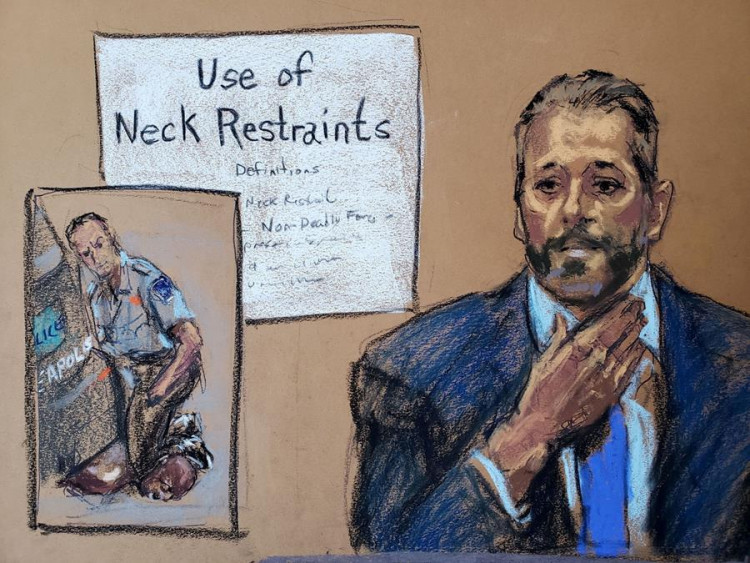An emergency medical technician who leads response training at the Minneapolis police says it is standard for officers to call an ambulance and provide immediate medical aid in "critical" situations, The Associated Press reported Wednesday.
Officer Nicole Mackenzie told the murder trial of former police officer Derek Chauvin: "If you don't have a pulse on a person, you immediately start cardiopulmonary resuscitation," Mackenzie, who trains officers in medical support, said. "If it's a critical situation, you have to do both CPR and call for an ambulance."
Mackenzie said even if someone in an emergency medical situation could talk, they may not be breathing adequately.
Sgt. Ker Yang, a 24-year veteran of the Minneapolis police and its crisis intervention training coordinator, said if a person in trouble is in need of medical attention, it "would be the immediate goal" for officers to "give them medical attention."
Officers who responded to George Floyd didn't administer medical aid, and Chauvin continued to press his knee on Floyd's neck for more than two minutes after officers realized he didn't have a pulse, court records show.
Prosecutors are arguing Chauvin used unreasonable force in pinning Floyd to the pavement for nine minutes and 29 seconds. Police have testified Floyd was under control and that force should have quickly ended.
Sgt. Jody Stiger, a use of force expert from the Los Angeles Police Department, was hired by the prosecution to evaluate the case.
Stiger said the force Chauvin employed was "excessive," based on video presented in the court.
Lt. Johnny Mercil, who trains Minneapolis police on the use of force, said officers should apply the least amount of force necessary to control someone and, once they got control, they should reduce their restraint.
Chauvin is charged with second- and third-degree murder and second-degree manslaughter for the death of Floyd.
Chauvin has pleaded not guilty. He faces up to 40 years in prison if convicted of the most serious charge.





